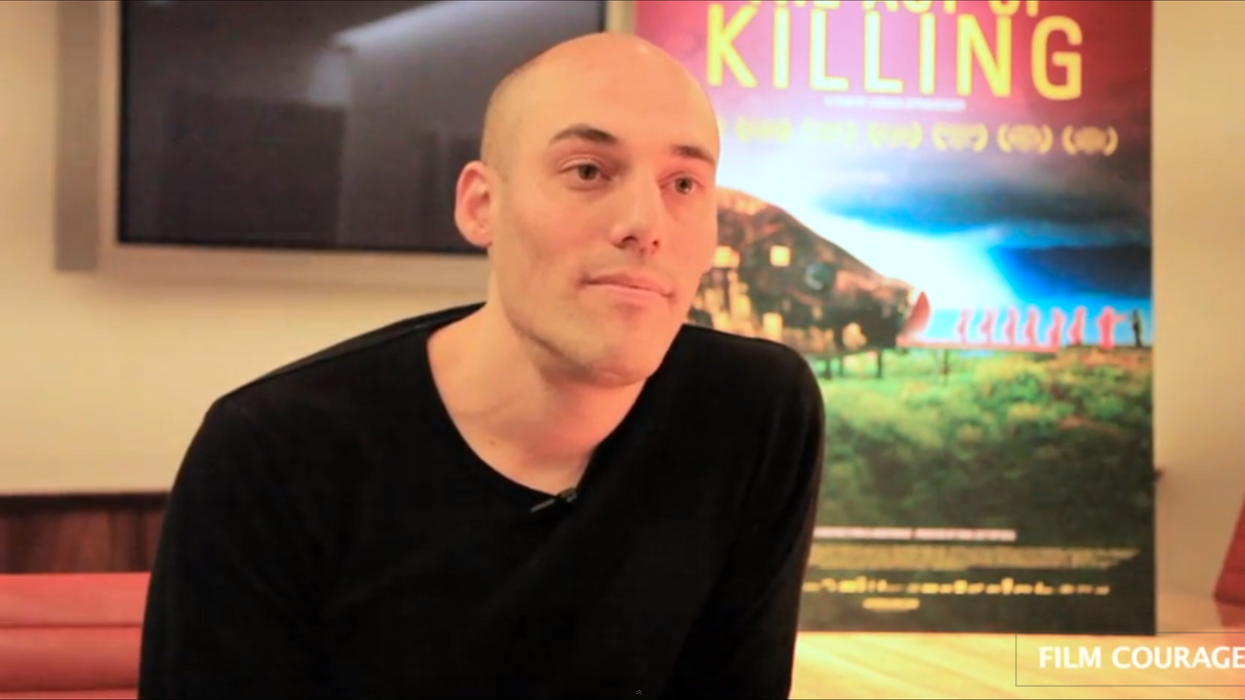'Act Of Killing' Director Joshua Oppenheimer Talks About Why His Film is Important

The Act of Killing, a documentary about a group of boastful human rights perpetrators, is making some noise after its release in New York and LA last week. Film Courage brings us a fascinating interview with director Joshua Oppenheimer who discusses what he discovered during the process of making his film over a yen year period in Indonesia. Joshua discusses why the film is important, how they avoided the film being banned and the companionship of his crew that made it all possible. Hit the jump to watch the videos and learn more:
These interviews from Film Courage really struck me. The way he talks about his film tells you that he's really been through it and really understands what happens to it. It's this kind of impeccable conscious approach to a project that can elevate it to something more than just a movie, and to something that enacts social change in the world.
Check out the interviews below:
Making The Act of Killing Gave Me Nightmares And Insomnia:
How We Avoided The Act of Killing Being Banned In Indonesia:
All Humans Are Capable Of Murder:
It's really powerful when he talks about how he and his crew had to "light what was a dark journey" for each other. Joshua's sentiments on escapism and his relationship with his subjects also strike especially true:
We tell ourselves that the trousers we're wearing are not the work of virtual slaves, but the work of a fashion designer, so as to forget the true nature of our reality. I think the film asks people to look at the nature of reality, and if I knew that if for a moment I see these men as anything but human then I'm once again escaping the reality by telling myself that I'm not like them. I feel I can't make a film honestly about another human being if I don't allow myself to get close to them.
I'm really curious to see this film, have any of you caught it yet? Share your experience in the comments below.
Link:
- Making The Act of Killing — Film Courage











